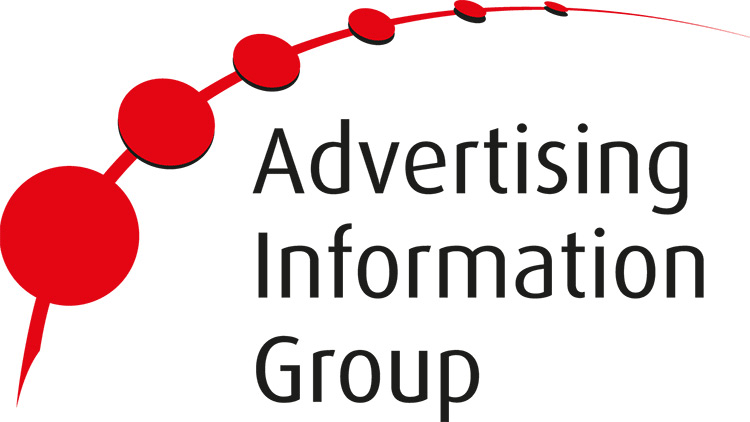AIG Newsletter 29 November 2022
Advertising Information Group-Newsletter
Lesedauer: 4 Minuten

POLITICAL ADVERTISING
IMCO discussion on the transparency and targeting of political advertising - Consideration of compromise amendments
This morning the IMCO Committee met to discuss compromise amendments to the report on the proposal on transparency and targeting of political advertising. The discussions focused on, among others, the scope and definition, enforcement, obligations of sponsors, centralised libraries and printed media. The MEPs also stressed the need to fight disinformation whilst also ensuring personal data and freedom of speech are preserved.
The Rapporteur, MEP Gozi (Renew), expressed his desire for a broad definition of political advertising, but also stated clarifications were needed to ensure only political advertising was covered. EPP Shadow MEP Arias said that the EPP was in favour of differentiating between editorial content and other (commercial) content to protect freedom of speech, reflecting a key concern of the AIG, which we raised in our communication to MEPs last week.
S&D Shadow MEP Marques argued that on definitions, the EP needed to preserve the Commission’s text, but also add a clear link to the use of advertising services to ensure private opinions and messages did not fall under the scope. ECR Shadow MEP Bielan wanted the definition of political advertising to be clear to avoid different interpretations and argued against the inclusion of a ban on personalised advertising under Article 12.
DisCo: Political Advertising: New EU Transparency Rules Should Avoid Unrealistic Deadlines
The Disruptive Competition Project (DisCo) published an article on 10 November which analysed the deadlines proposed by EU lawmakers in the framework of the transparency and targeting of political advertising. Where a requirement for online platforms to respond within 48 hours to user notices during the month before an election or referendum had been proposed, the article outlined four potential risks which this deadline could have:
- A 48-hour deadline could lead to an excessive removal of political ads.
- User notices could easily be abused to suppress opposing voices.
- Changes would lead to ambiguity, instead of more clarity.
- The decision on the requirement should be based on expert knowledge, which would allow for online platforms to make more efficient and quality-based actions against potential non-authorised content.
AVMSD
EP CULT published its draft report the implementation of the Audiovisual Media Service Directive
On 17 November, the European Parliament published a draft report on the implementation of the AVMSD.
Rapporteur Petra Kammerevert (S&D) noted that the transposition of the directive within EUMS is not where it needed to be. Although some progress has been made by EUMS in implementing the directive, most media services platforms were established within the Republic of Ireland, an EUMS which was one of five countries that had not reformed its legal framework to comply with the directive.
The Rapporteur encouraged EUMS to correctly implement the country-of-origin principle and ensure a better protection of minors from harmful content. It also suggested creating investment incentive schemes in the form of tax credits to promote European content, and called on EUMS to provide further resources to national authorities.
The draft report will be presented during the CULT’s meeting on 1 December and the deadline for tabling amendments will be on 12 January.
DATA
Transatlantic business associations announce their support of the EU-US Data Privacy Framework
On 14 November, 41 associations from the Transatlantic Business Community published a statement in strong support of the EU-US Data Privacy Framework. The aim of the statement was to urge EU policymakers to finalise the agreement on the framework. Signatories included EC President von der Leyen, Executive Vice-President Vestager, the EDPR, EDPS, the EP LIBE Committee and the Biden Administration. In the statement, the 41 signatories underlined the significance of a new framework after the invalidation of the EU-US Privacy Shield in 2020.
DIGITALEUROPE event on the Data Act: enabling trusted data sharing in Europe
On 14 November, DIGITALEUROPE held an event on the Data Act. Shadow ITRE Rapporteur, Damian Boeselager MEP (Greens/EFA) attended the event, along with Richard Vesterberg, the representative of the upcoming Swedish Presidency and Yvo Volman (DG CONNECT).
The main objectives of the proposal were touched on, with Yvo Volman highlighting that the Commission aimed to ensure investments in data technology and clarity over who can access data, and under what circumstances. Industry stakeholders stressed the need for more clarifications, particularly on what kind of data should be shared and the obligation to share information with public institutions. Other concerns included the importance of the protection of data, and in particular sensitive data, in addition to ensuring the Data Act aligned with GDPR.
ALCOHOL
Scottish Government publishes its consultation on restricting alcohol advertising and sports sponsorship
On 21 November, the Scottish Government published a consultation which proposed advertising restrictions on a broad range of areas, including outdoor and public spaces marketing, brand sharing & merchandise and cinema advertising. This could set a precedent for European nations to follow. The AA will respond.
DATES FOR YOUR DIARY
- 30 November: How to ensure a balanced EU approach towards credit agreements for the benefit of consumers?, Renew Europe.
- 5 December: Workshop on Digital Markets Act (DMA), European Commission.
- 6 December: AIG Exchange (4-5pm CET) (Via Teams)
- 7 December: State of the Nation – Digital Advertising Outlook 2023, IAB Europe.
- 7 December:How data can lead a mobility revolution, EP and Bridgestone